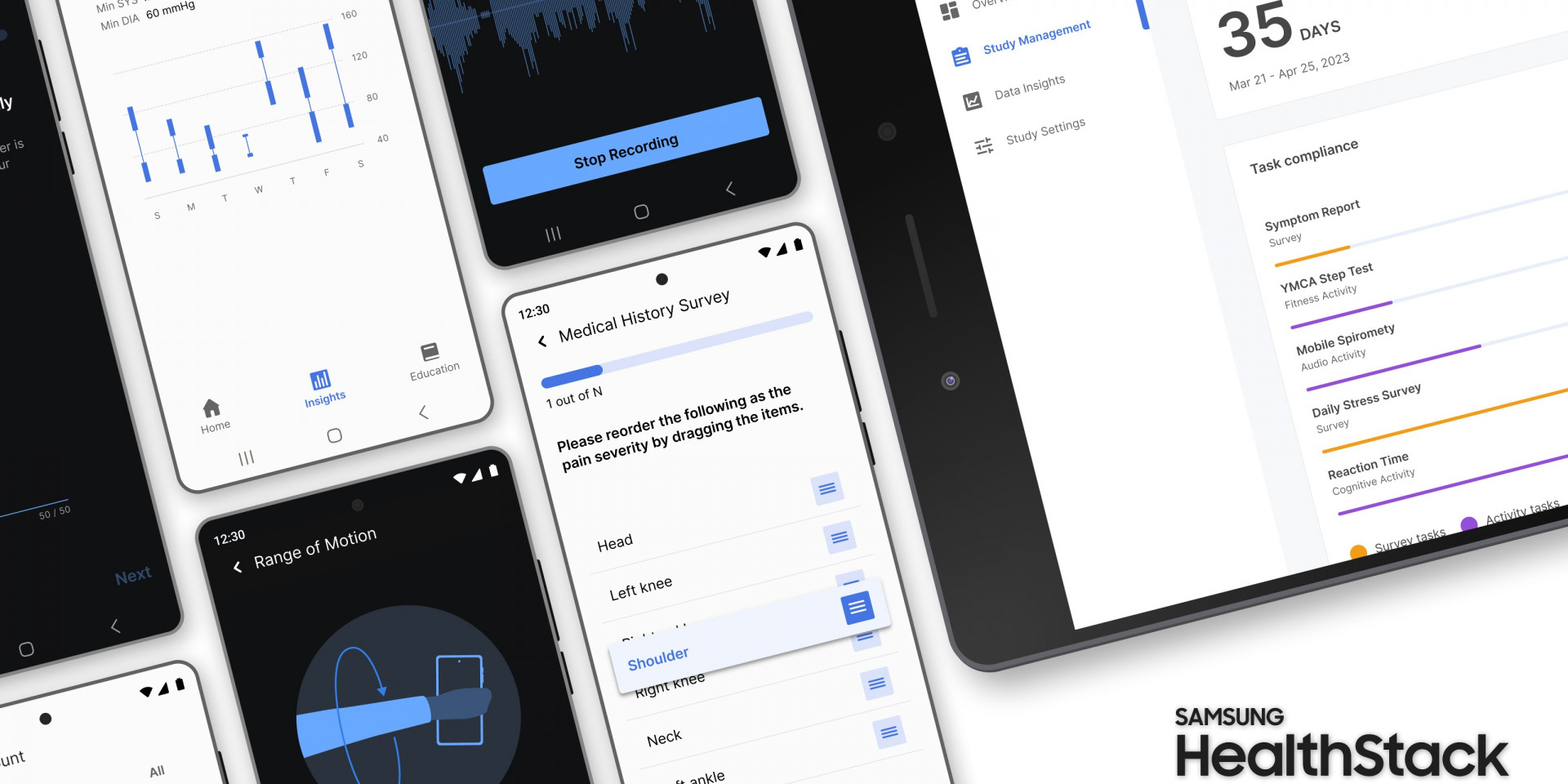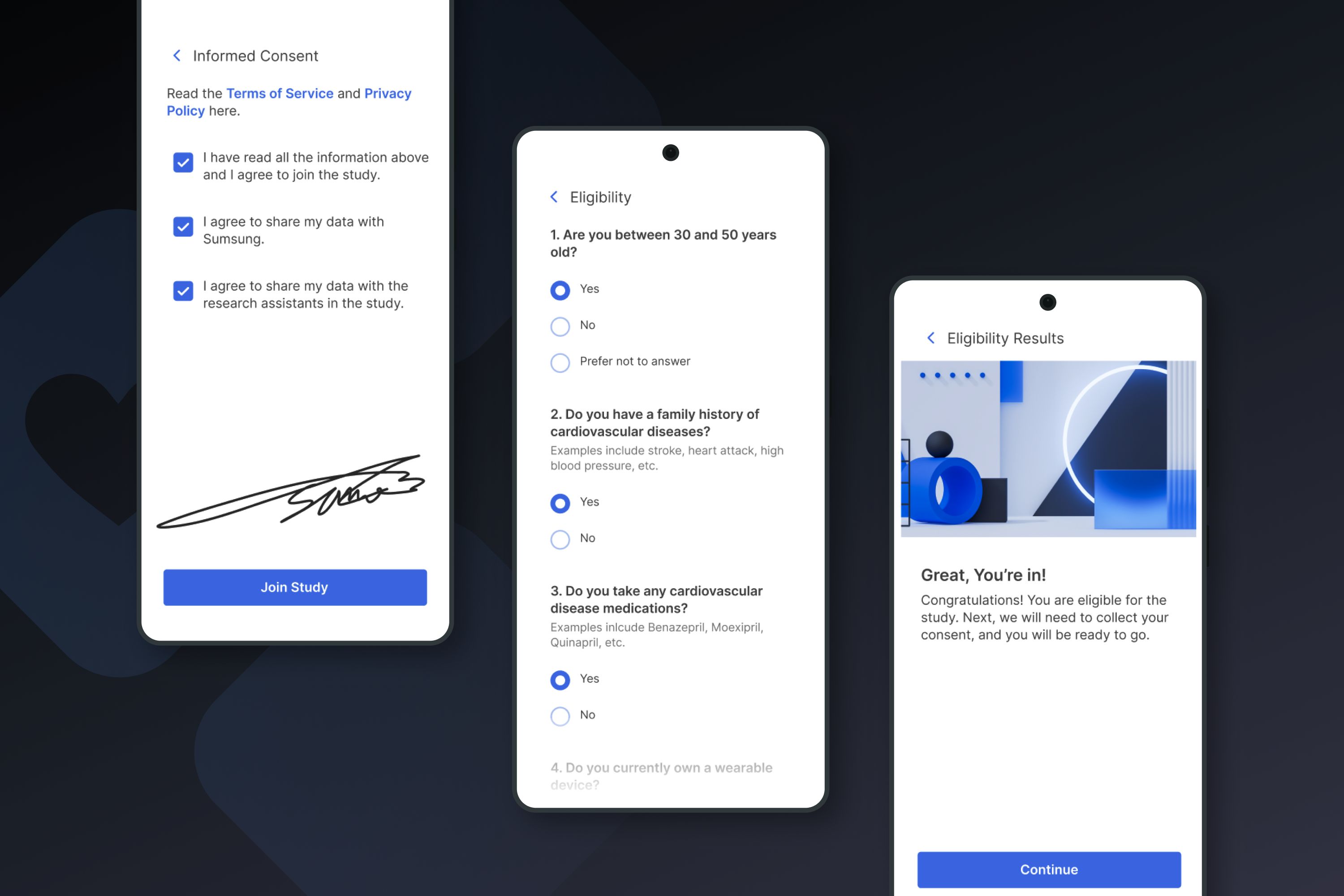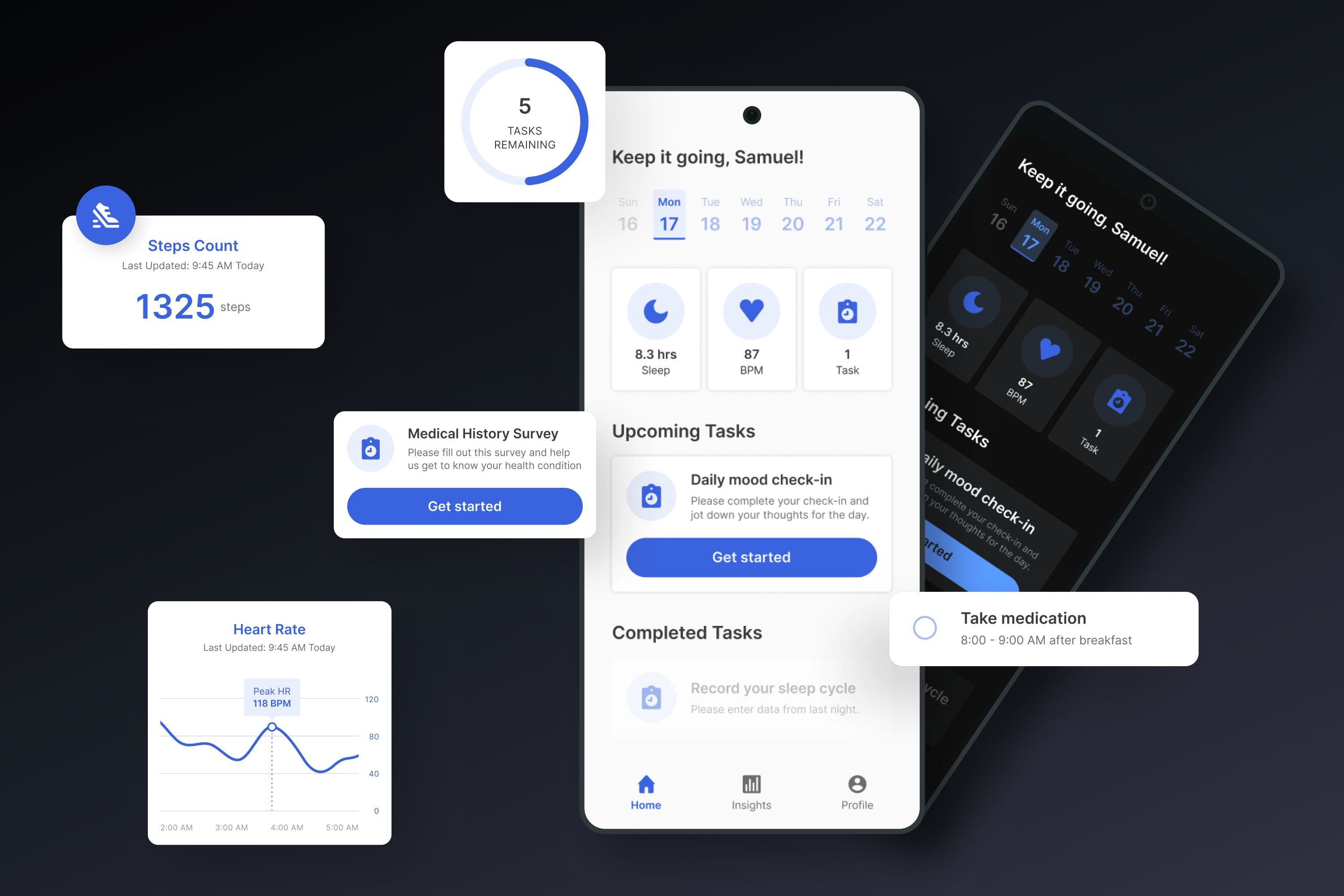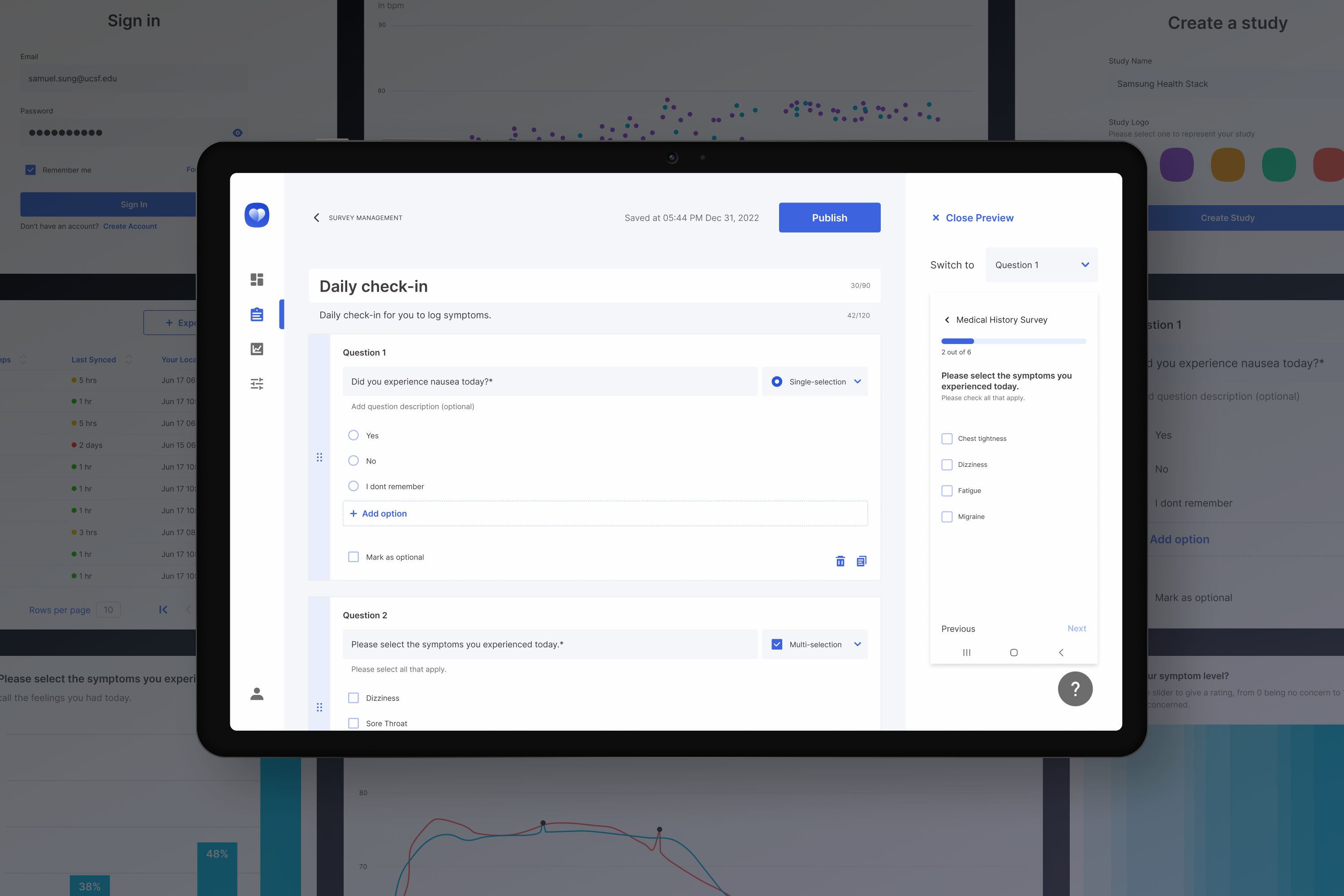
Designers
Digital Health Lab / Kim Im, Lillian Choi, Jiaqi Wang, Apurva Chinta, Ixabu Gonzalez
Year
2023
Category
Product
Country
United States

»The "Samsung Health Stack" represents an important improvement in the preparation and implementation of health studies. The sample library and SDK provide readily available templates and software modules that significantly improve the current situation in this domain. Medical researchers are relieved allowing them to focus on their actual tasks and patients are provided with a better user experience. The product leverages the power of popular mobile devices to drive health research and achieve better outcomes. The open-source approach supports scaling and broad access to valuable application resources.«
Peter Post
And the Award goes to...

One question to the project team
What was the particular challenge of the project from a UX point of view?
It is very common to build design elements and for them to get outdated with time. The big problem with that is if we create fixed design elements for each case, they all can be outdated, and if we decide to create too versatile elements for each use case that can become very resource heavy. The challenge was to find the best balance. One way of approaching what we used was to see which structure of duplication and re-usability can be implemented. We worked with the developers of the SDK and App Portal to see how designs are implemented by them. We also identified that the biggest issues within outdated design come from the design of the elements. We also realized from the developer team that, accomplishing a change within the design of the element is easier than in layout. The design of the element in this case refers to typography, color, texture, contrast, and shape. Using these principles, we can create a whole variety of unique designs for the SDK and the Portal that can be easily adapted to the expanding use cases later. We also have more understanding of how the design will transform into code and be used by the users. This also gives up more specific guidelines to use within our design to ensure fast development within our own teams. The challenges we overcame during this project will be valuable in our future endeavors, and we are confident that the resulting product will provide a strong foundation for the continuing growth and success of Samsung Health Stack.

